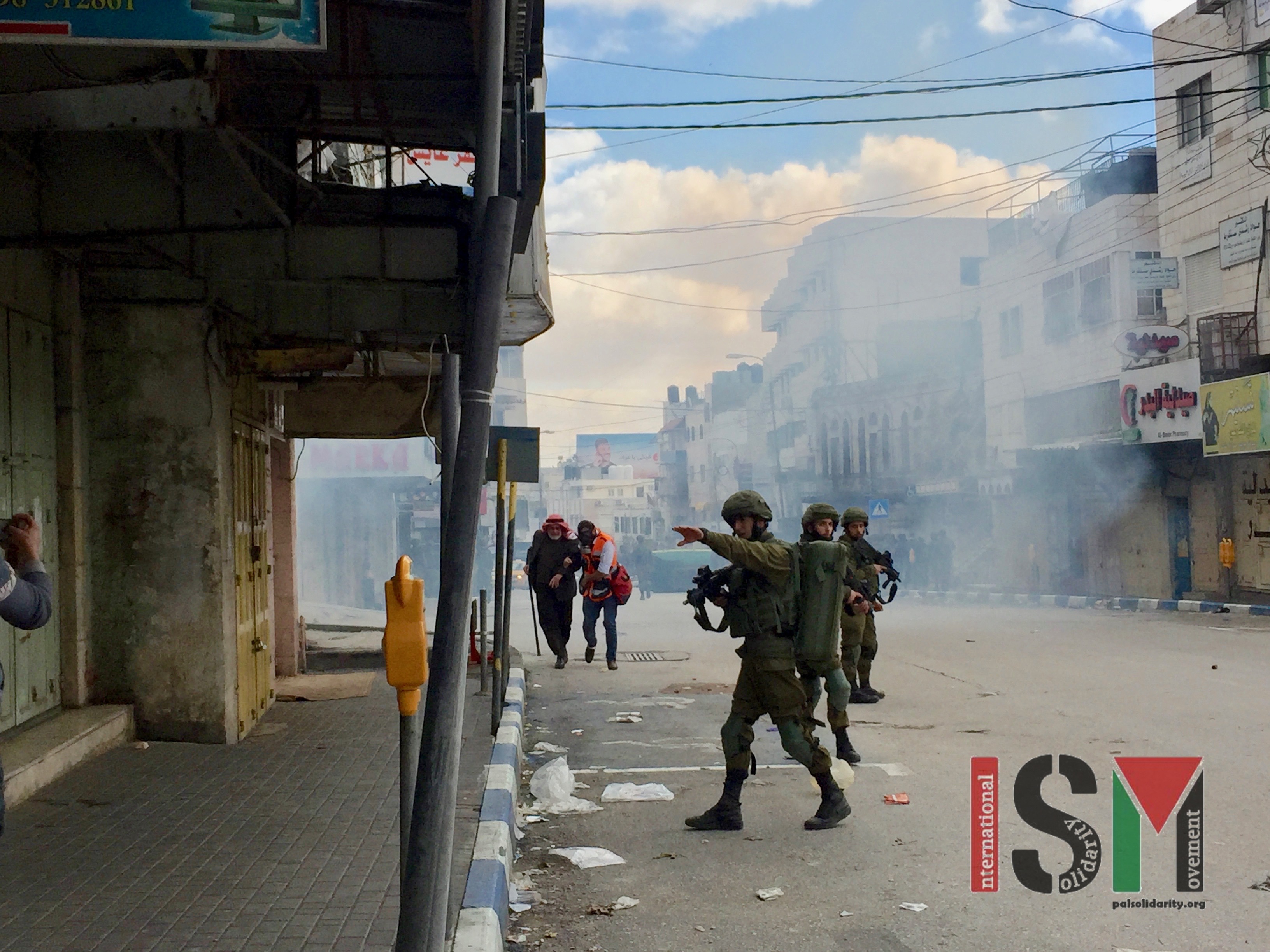Tag: Jerusalem
-
Hundreds of Israeli Soldiers Violently Suppress Demonstration in Hebron
December 2017 | International Solidarity Movement, al-Khalil team | al-Khalil, Occupied Palestine In response to Donald Trump’s declaration of Jerusalem as the capital of Israel hundreds of heavily armed Israeli soldiers invaded the Palestinian controlled areas of Hebron to clash with demonstrators. The clashes were likely also fueled by a general strike of work and…
-
A call for solidarity from Kufr Aqab
24st November 2017 | International Solidarity Movement, Nablus team | Nablus, Occupied Palestine Six residential buildings in the Kufr Aqab neighbourhood in Jerusalem are currently facing demolition orders by Israeli authorities. The neighbourhood is the northernmost part of Jerusalem but is separated from the rest of Jerusalem by the Apartheid Wall. Most of the residents…
-
Supporting Fayzeh
15th August 2017 | Supporting Fayzeh | occupied Palestine Many of you know Fayzeh and Issa Souf from the West bank village of Hares. Fayzeh has been recently diagnosed with advanced stomach cancer. She has been hospitalized for the last month and has began receiving chemotherapy. Issa and Fayzeh’s dedication, generosity and kindness have touched…



